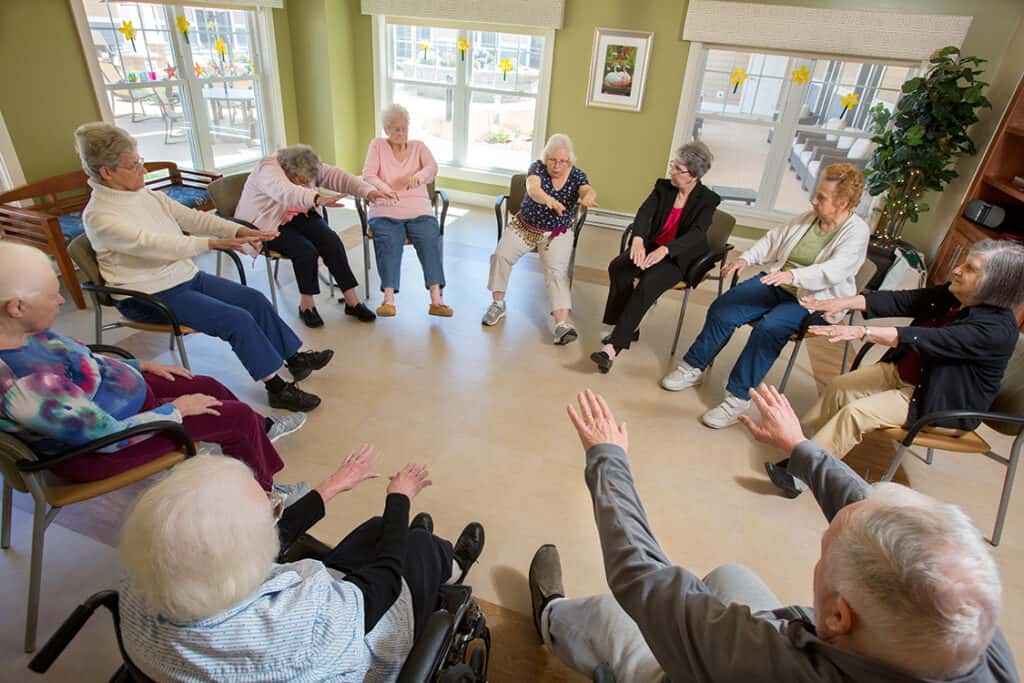Discover premium Assisted Living communities with premium amenities.
Discover premium Assisted Living communities with premium amenities.
Blog Article
Just How Assisted Living Facilities Enhance Top Quality of Life for Those With Dementia
The combination of engaging programs and family members participation better enhances the homeowners' experience. The complexities of dementia treatment continue to develop, motivating a more detailed exam of exactly how these centers adjust and innovate to satisfy the challenges dealt with by homeowners and their households.
Personalized Treatment Plans
(Dementia Care Charlotte)In many cases, people with dementia require tailored assistance that addresses their distinct requirements and preferences. Customized treatment plans are important in assisted living settings, as they make certain that each resident receives suitable focus and solutions. These plans are established collaboratively, entailing health care professionals, caregivers, and member of the family to produce a thorough summary of the person's case history, cognitive capabilities, and individual rate of interests.
A well-structured personalized treatment strategy normally includes details goals associated with health and wellness monitoring, daily activities, and social engagement. It makes up the individual's cognitive decline while promoting independence and self-respect. Normal evaluations and updates to the treatment plan are important, as they allow for modifications based upon the citizen's evolving condition and choices.
Key elements of these plans usually involve drug monitoring, behavioral assistance techniques, and nutritional standards tailored to the person's needs (Assisted Living). By concentrating on individualized care, assisted living centers can foster an encouraging atmosphere that boosts the lifestyle for people with dementia, inevitably adding to their general well-being and happiness. This individualized strategy respects the individuality of each local, guaranteeing they receive the compassionate care they need

Engaging Activities and Programs
Involving citizens in purposeful activities and programs is essential for improving the lifestyle for people with mental deterioration. These activities not just provide pleasure however likewise promote cognitive feature and advertise social interaction, which can reduce sensations of isolation typically experienced by residents.

Furthermore, tailored programs are crucial in making certain that each resident's one-of-a-kind choices and capabilities are acknowledged. This customized technique motivates participation, improves self-confidence, and gives a sense of success.
Moreover, regular evaluations of homeowners' interests can assist team modify and adjust activities to far better match evolving requirements. By focusing on appealing activities and programs, assisted living centers can substantially improve the total experience and emotional wellness of individuals coping with dementia.
Safe and Encouraging Environment
Developing a secure and supportive atmosphere is necessary for people with mental deterioration, as it straight influences their well-being and lifestyle. Helped living centers are developed with specific features that advertise safety while fostering a feeling of protection and convenience. These settings focus on ease of access, with layouts that reduce confusion and motivate freedom, enabling citizens to browse their surroundings a lot more quickly.
Safety actions, such as safe and secure entrances and exits, protect against straying and unauthorized accessibility, which are essential considerations for individuals with dementia (Memory Care). Personnel are trained to acknowledge the distinct requirements of homeowners, giving customized assistance and guidance to ensure their safety and security. The consolidation of relaxing shades and familiar objects can assist reduce stress and anxiety and disorientation, producing a much more soothing environment.
In addition to physical safety, psychological assistance is vital. Facilities often use staff who are not just competent in caregiving but also trained in empathy and communication, promoting trust fund and rapport with residents. This alternative strategy adds to a caring atmosphere where people really feel valued and understood, inevitably boosting their total lifestyle.
Social Interaction and Neighborhood
A helpful environment not just prioritizes safety and security yet likewise cultivates possibilities for social communication and area engagement, which are vital for individuals with dementia. In nursing home, structured tasks and public rooms urge homeowners to attach with each other, lowering feelings of isolation typically experienced by those with cognitive impairments.
Social communication plays a substantial function in enhancing emotional health and cognitive function (Memory Care). Engaging with peers in group activities such as video games, arts and crafts, or workout not just promotes cognitive abilities but also supports a feeling of belonging. Facilities commonly organize events that advertise socializing, enabling locals to build partnerships and share experiences, which can be specifically helpful for those with dementia
In addition, a lively neighborhood atmosphere can enhance the total lifestyle for locals. Personnel are trained to facilitate communications and support residents in creating significant connections. By developing a culture of involvement, helped living facilities aid individuals with mental deterioration preserve social skills and boost their mood, inevitably adding to a more satisfying life experience. This community-oriented method is essential in handling the challenges connected with dementia, advertising a sense of objective and continuity for residents.
Family Members Involvement and Assistance
Family participation is critical in supporting people with dementia in assisted living environments. Proactively engaging household participants not only supplies emotional comfort to citizens yet likewise promotes a feeling of belonging and continuity in their lives. When households get involved in care planning and everyday tasks, they add important insights concerning the person's preferences, history, and requires, which can boost individualized care.
In addition, normal family sees can significantly improve the emotional wellness of homeowners, reducing feelings of isolation and stress and anxiety. Household participants website here can additionally aid in keeping cognitive function by engaging their loved ones in familiar conversations and activities. This interaction reinforces personal identity and assists locals feel valued and comprehended.

Verdict
In verdict, helped living facilities significantly enhance the lifestyle for people with dementia through individualized treatment plans, involving tasks, and a risk-free environment. These components foster cognitive excitement, emotional health, and a feeling of self-reliance. Routine social interactions and solid household involvement add to meaningful links and emotional assistance. Collectively, these factors develop an alternative strategy to care that addresses the special needs of people with dementia, advertising overall health and dignity.
Report this page